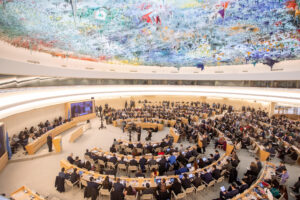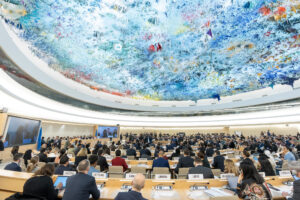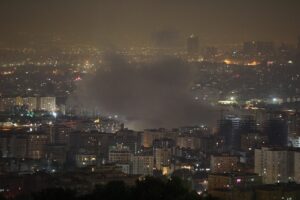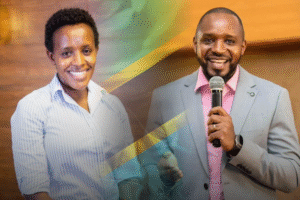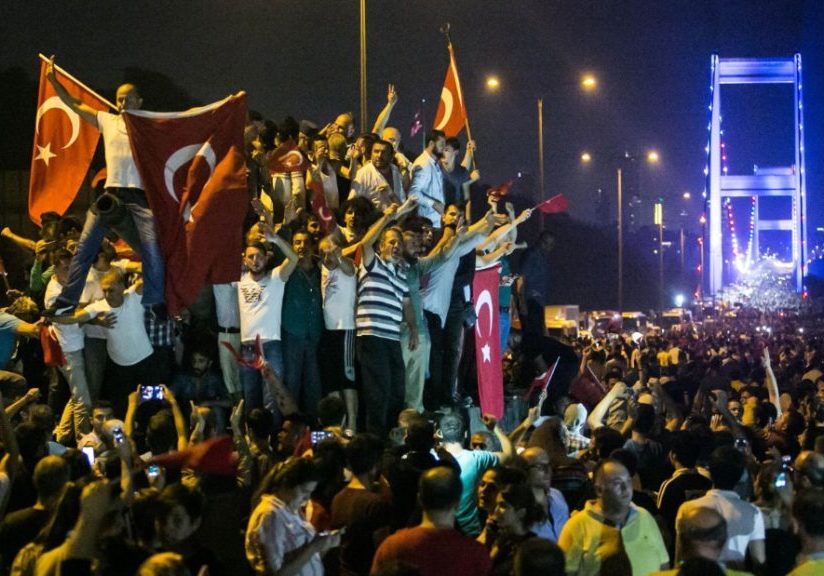
Sep 19, 2016 | Advocacy, Non-legal submissions
The ICJ today expressed concern at the UN for the independence of the judiciary, human rights, and the rule of law in Turkey, highlighting measures taken by the government, almost immediately after a failed coup in July, to suspend or dismiss thousands of judges and prosecutors.
The statement, which was delivered in General Debate on country situations, at the UN Human Rights Council in Geneva.
The statement read as follows:
The International Commission of Jurists (ICJ) wishes to draw the Council’s attention to the crisis of the rule of law in Turkey, and its serious consequences for the protection of human rights.
Within hours of the failed coup attempt in July, the Government initiated a purge of the judiciary on an unprecedented scale.
At least 3,300 judges and prosecutors have been dismissed or suspended, and hundreds have been arrested, including members of the High Council for Judges and Prosecutors.
Many of these measures appear to be arbitrary and fail to respect the right to a fair hearing before an independent authority.
These actions have done severe damage to the already fragile independence of the judiciary in Turkey, and threaten the right to a fair trial.
They represent a dramatic escalation of the attack on judicial independence that was already underway before the attempted coup, documented in an ICJ report published in June.
State-of-emergency decrees further undermine protection of human rights.
Periods for pre-trial detention have been extended and detainees’ confidential access to lawyers has been restricted. There are credible reports of ill-treatment of detainees, and of harassment of lawyers representing them.
The ICJ recalls that certain rights, including the prohibition on torture or other ill-treatment, and essential elements of the prohibition of arbitrary detention and right to a fair trial by an impartial tribunal, can never be derogated from, even in the most serious states of emergency.
The ICJ urges Turkey to take measures to restore the rule of law and ensure respect for human rights under the state of emergency.
The statement may be downloaded in PDF format here: hrc33-oralstatement-gditem4-turkey-2016
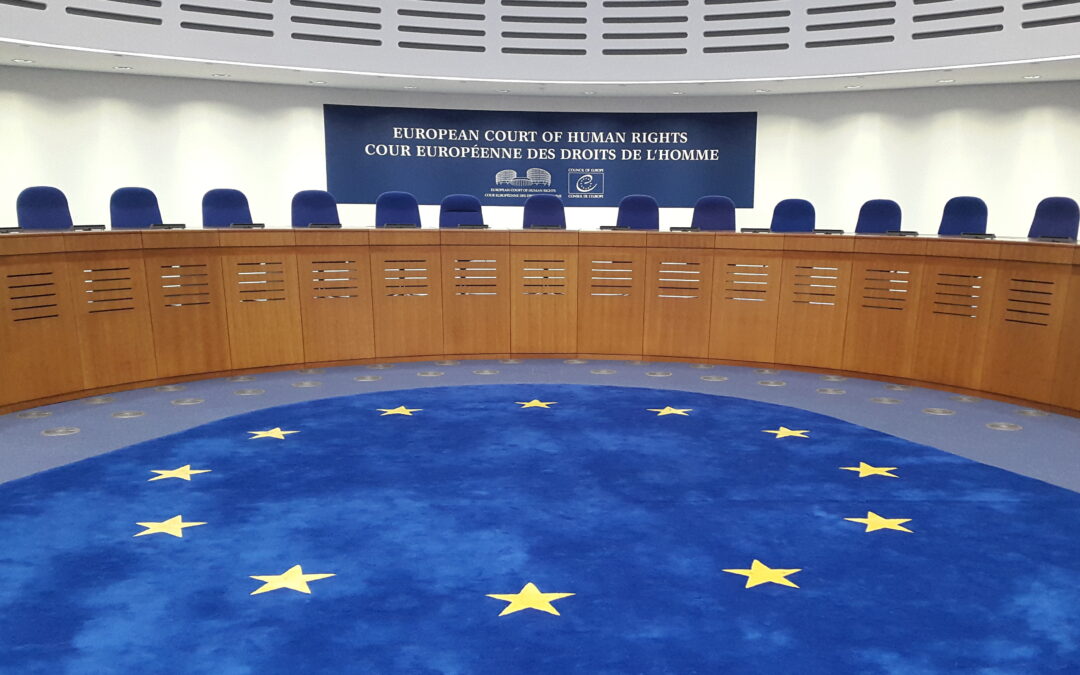
Sep 19, 2016 | Адвокаси, Новости, Статьи, Юридические заявления
Сегодня МКЮ выступила перед Европейским судом по правам человека в случае экстрадиции узбекского гражданина в страну происхождения, где он может подвергаться риску пыток или жестокого обращения.
Международная комиссия юристов (МКЮ) вмешалась по делу С.У. против России.
В своих материалах МКЮ рассмотрела правовые рамки, регулирующие экстрадицию из Российской Федерации в государства Центральной Азии, в частности Узбекистан, а также практику экстрадиции России, в том числе путем использования дипломатических заверений. Эти материалы направлены на то, чтобы помочь Суду в оценке соблюдения этого закона и практики Европейской конвенцией о защите прав человека (ЕКПЧ) и, в частности, его процедурными обязательствами по невыдвоению.
МКЮ пришла к выводу, что анализ законодательства и практики показывает ряд критических нарушений прав человека.
МКЮ признала, что отсутствие уважения к процессуальному аспекту принципа невыдворения, вытекающая из этого неэффективность внутренних средств правовой защиты в этом отношении в Российской Федерации и ужасающий отчет Узбекистана в отношении соблюдения его обязательства уважать и защищать запрещение пыток или другого жестокого обращения означает, что экстрадиции из Российской Федерации в Узбекистан влекут за собой высокий риск нарушения как основных, так и процессуальных аспектов принципа невысылки.
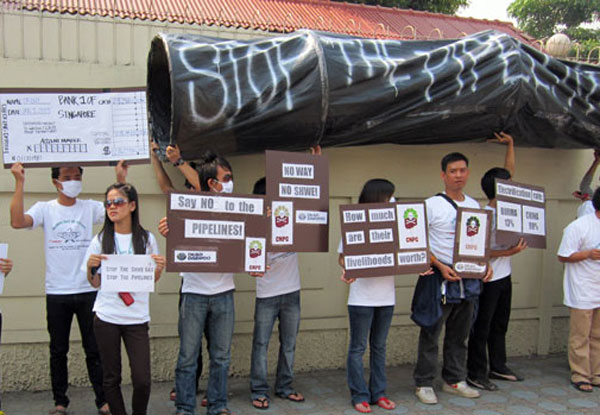
Sep 18, 2016 | News
The ICJ held a workshop on Environmental Impact Assessment in Kyauk Phyu on 17-18 September 2016. Thirteen women and 30 men attended from Kyauk Phyu town, its surrounding villages and the regional capital Sittwe.
Kyauk Phyu is the proposed site for a megaproject to include a Special Economic Zone and deep seaport in Myanmar’s westernmost Rakhine State.
A Chinese company plans to develop the projects and the newly elected Myanmar Government is considering its future.
The EIA workshop included lawyers and civil society representatives as well as village administrators from each of the nine village administrative tracts in the proposed SEZ area.
An EIA is designed to avoid, minimize, eliminate and reduce harmful impacts of development projects.
It can require revising plans, making alternative arrangements and even cancelling project components.
Myanmar law now requires EIAs, including in SEZs, under the 2014 SEZ Law and 2015 EIA Procedure. Health, livelihood and social impact assessments are critical to this process.
Projects may only commence after the Environment Ministry approves an EIA.
Sean Bain, ICJ Legal Consultant for Myanmar, shared updates from research on SEZ legal frameworks and project plans.
The ICJ’s Legal Researcher, U Hayman Oo, facilitated discussions and linked these laws with local developments.
Participants were encouraged to document their land and livelihoods so they may have an evidence base to refer to in future.
Matthew Baird, an environmental lawyer supporting both the Environment Ministry and civil society groups, outlined each step involved in an EIA.
He emphasized the importance of public participation throughout the process – particularly in the early screening and scoping stages.
Early community engagement is critical to influence the focus and scope of the investigation, which would inform the draft EIA Report developed by an EIA consultancy firm.
Daw Khin Su Su Naing, from Coffey, explained the role of the consultancy firms hired by companies to conduct EIAs.
She described how social impacts are assessed, providing examples from elsewhere in Myanmar. Public participation was again emphasised as crucial.
U Mya Hlaing, from the Thilawa Social Development Group, shared community experiences from the development of Myanmar’s only active SEZ – located in Thilawa, across the river from Yangon. Villagers resettled by the project remain concerned about the standard of relocation sites and loss of livelihood opportunities.
Community organizing in Thilawa has been an important factor in improving public participation in EIA and resettlement processes.
Dr Daniel Aguirre, the ICJ’s International Legal Adviser, discussed international business and human rights frameworks, and the monitoring role of civil society.
From Earth Rights International, U Zaw Zaw explained how an Operational Grievance Mechanism can be a useful tool for creating a communication channel between affected people and companies.
An OGM cannot solve all problems, but can help to discuss issues and remedies as they arise.
Many participants have experienced impacts from irresponsible and at times illegal business activities.
Kyauk Phyu hosts oil and gas facilities that serve a pipeline, finished in 2013, linking the Bay of Bengal with western China. No public EIA was conducted, and locals say the pipeline project led to land loss, deteriorating livelihoods and environmental pollution.
Many are still owed compensation and some were imprisoned for protesting to demand remedies.
Workshop participants expressed concerns that these problems will be repeated.
U Mya Hlaing encouraged locals in Kyauk Phyu to review the legal procedures and understand government obligations: “I am just a poorly educated farmer, but I have carefully read the laws and it has helped our community to demand our rights.”
He encouraged participants to raise concerns with Myanmar’s new governance bodies for SEZ management.
This was the ICJ’s third event in Kyauk Phyu over two years, with further initiatives planned.
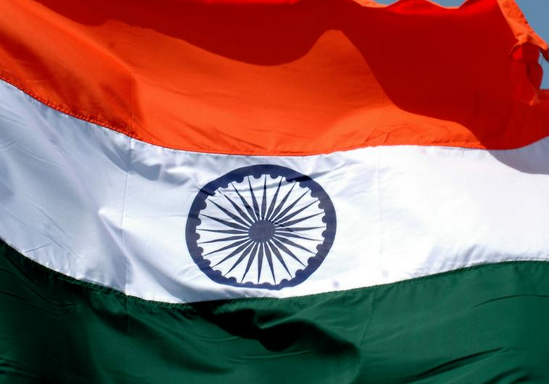
Sep 16, 2016 | News
Indian authorities have detained a Kashmiri human rights activist after stopping him from traveling to the United Nations Human Rights Council in Geneva, Human Rights Watch and the ICJ said today.
Khurram Parvez was arrested in his home on 15 September 2016, a day after being prevented from leaving the country with a group of rights activists who were traveling to Geneva to raise concerns about the security force crackdown in Jammu and Kashmir.
Human Rights Watch and the ICJ call on authorities to immediately release Parvez and allow him to attend the Human Rights Council session.
“Indian authorities seem to have missed the irony of blocking a rights activist on his way to the UN Human Rights Council,” said Sam Zarifi, Asia Director at the International Commission of Jurists.
“Monitoring and engage
ment by civil society is necessary to prevent human rights violations and ensure accountability. The Government should immediately release Khurram Parvez and begin working with him and other activists to address the difficult issues facing Jammu and Kashmir,” he added.
Parvez, 39 years of age, is chair of the Asian Federation Against Involuntary Disappearances (AFAD) and program coordinator of the Jammu Kashmir Coalition of Civil Society (JKCCS).
He has documented cases of enforced disappearances and investigated unmarked graves in Kashmir.
According to his lawyer, Parvez has been detained by Kashmir police under “preventive detention” provisions of the Code of Criminal Procedure, including section 151 (arrest to prevent the commission of cognizable offense).
The Government’s actions against Parvez violate his right to freedom of movement.
Under international human rights law, any restrictions on freedom of movement for security reasons must have a clear legal basis, be limited to what is necessary and be proportionate to the threat.
This is further supported by article 5 of the UN Declaration on Human Rights Defenders, which states that “[f]or the purpose of promoting and protecting human rights and fundamental freedoms, everyone has the right, individually or in association with others, at the national and international levels… to communicate with nongovernmental or intergovernmental organizations.”
“Instead of trying to silence human rights activists, India should be addressing the serious human rights problems in Jammu and Kashmir and holding perpetrators of abuses to account,” said Meenakshi Ganguly, South Asia Director at Human Rights Watch.
“Preventing open discussion of these issues, whether in India or in Geneva, sends a message to Kashmiris that the government has no interest in addressing their concerns,” she added.
Background
Violent protests broke out in Jammu and Kashmir state after the killing of Hizb-ul-Mujahedin militant Burhan Wani in an armed encounter on 8 July.
Since then, the authorities have placed large parts of the state under curfew restrictions to try to stop protesters who hurl stones at security forces and attack police posts.
Security forces have used unnecessary lethal force to contain the violence, which has resulted in the death of 80 protesters and 2 police officers, and thousands injured.
Some protesters, including children, lost their vision from pellets fired from riot-control guns.
While police have a duty to protect lives and property, under the UN Basic Principles on the Use of Force and Firearms by Law Enforcement Officials, they should use non-violent means as far as possible, only use force when unavoidable and in a proportionate manner, and use lethal force only when absolutely necessary to save lives, Human Rights Watch and International Commission of Jurists said.
The authorities have also attempted to censor news and restrict access to information.
The Government shut down local newspapers for three days, blocked mobile internet services temporarily, and ordered local cable operators to block the transmission of five news channels on television.
India has failed to address longstanding grievances in Jammu and Kashmir.
Numerous expert committees in India have recommended steps to address past human rights violations, including a repeal of the draconian Armed Forces Special Powers Act, but the Indian Government has ignored these recommendations.
Contact:
Sam Zarifi, ICJ Asia-Pacific Regional Director, (Bangkok); t:+66(0) 807819002; e: sam.zarifi@icj.org
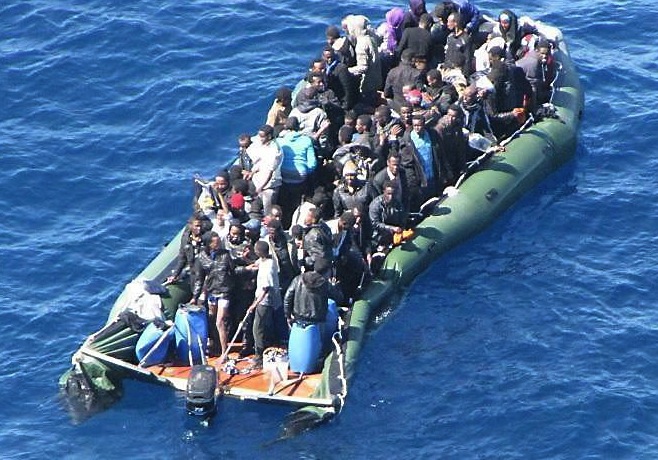
Sep 16, 2016 | Advocacy, Non-legal submissions
At the UN Human Rights Council, the ICJ today emphasized the role of judges and lawyers in securing human rights and the rule of law for refugees and migrants, including in situations of large-scale movements.The statement, delivered during a general debate, read as follows:
As the report of the High Commissioner for Human Rights, on Promotion and protection of the human rights of migrants in the context of large movements (UN doc A/HRC/33/67), recognizes, all such persons must have “access to justice”, including effective access to courts and lawyers.
This includes fair and effective individualized procedures in relation to key decisions such as: entitlement to refugee status or other international protection; detention or criminal proceedings based on entry or presence in the country; and expulsion or onward transfer.
The roles of the executive, legislature and judiciary in such situations has been debated in many countries. In some cases, governments have invoked the concept of “crisis” or “emergency” to justify radical departures from ordinary procedures, including reducing effective access to independent judges and lawyers.
In the experience of the International Commission of Jurists (ICJ), over many decades and in all regions of the world, the role of judges and lawyers in securing human rights and the national and international rule of law is in fact even more important in times and circumstances perceived to be “exceptional”, or of “crisis” or “emergency”. The ICJ is therefore deeply concerned about any reduction of the role of judges and lawyers in relation to large-scale movements of refugees and migrants.
The seventh annual ICJ Geneva Forum of Judges & Lawyers, 17-18 November 2016, will bring together judges, lawyers, and refugee and migration experts from around the world, as well as relevant UN, regional, and other agencies, to discuss the role of judges and lawyers in situations of large-scale movement of refugees and migrants. Based on the discussion, the ICJ will produce and disseminate guidance on the important role of judges and lawyers to protect human rights and the rule of law in all such circumstances.
The statement may be downloaded in PDF format here: hrc33-oralstatement-gditem3-migrantsrefugees-16092016






